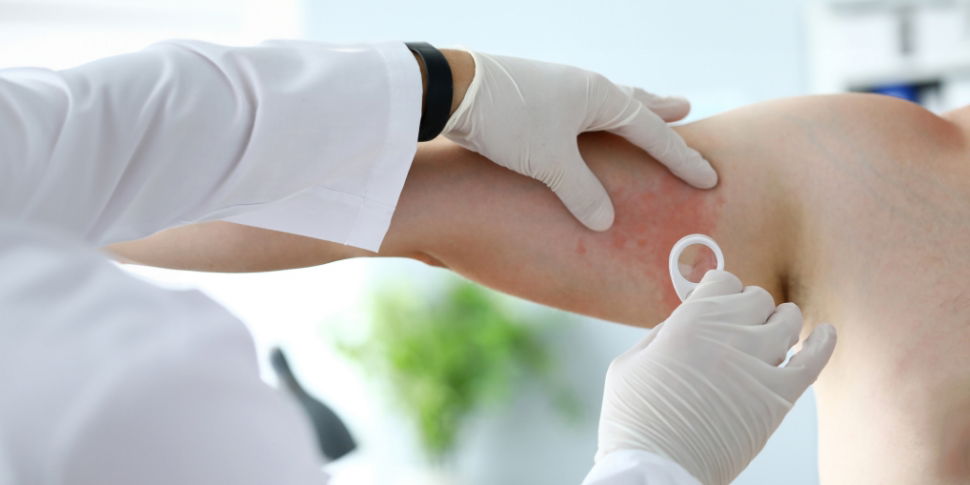When you observe the emergence of a red patch, or small blisters and bumps on your skin, the natural assumption is that you have a rash. However, the term “rash” can encompass a wide range of skin conditions, including viral, fungal, and bacterial infections. Although most rashes are harmless, consulting with a board-certified dermatologist is crucial to diagnose the underlying cause and establish an appropriate treatment plan. Feinstein Dermatology provides comprehensive rash care to help you achieve full skin health in Delray Beach, FL.

What Is a Rash?
A rash can be any type of inflamed, irritated, or swollen skin. Rashes may be localized, or they can spread throughout the body, and they typically present with red blisters, bumps, or scales. Some of the most common types of rashes include:
- Atopic dermatitis, or eczema
- Bacterial infections
- Fungal infections, including yeast infections and ringworm
- Viral infections, including shingles
- Chronic skin conditions like psoriasis or acne
In some cases, a rash may also be symptomatic of a deeper illness, like Lyme Disease. Seeking diagnosis by a board-certified doctor is essential to finding the highest level of care and experience.
What Causes a Rash?
If you’re experiencing a rash, it’s essential to understand that rashes can have various underlying causes. For instance:
- Infections, whether viral (measles, herpes, chicken pox), bacterial (scarlet fever), or fungal (athlete’s foot, jock itch), can trigger rash symptoms.
- Allergies to bug bites, medications, foods, or irritating cosmetic products may cause your skin to flare up with rash symptoms.
- Prolonged exposure to water or other liquids, such as in the case of diaper rash in babies, can lead to rash development.
- Contact with plants like poison ivy and poison oak can also result in rashes.
Treatment Options
Our board-certified dermatologist can assess your rash, determine its nature and its cause, and recommend a treatment plan that will restore you to total comfort. Depending on the type of rash you have, your treatment may involve:
- Allergy medications
- Anti-inflammatory medications
- Topical or oral steroids
- Topical immunomodulators
Most skin rashes go away with treatment, though chronic conditions like eczema will require lifelong management.
Meet Our Board-Certified Dermatology Team
At Feinstein Dermatology in Delray Beach, FL, our commitment is patient satisfaction and loyalty. We are defining the new standard in customer experience and outcomes, striving to lead by example for others to follow. With a dedicated patient base of over thirty-five thousand (35,000) individuals who have entrusted us with their dermatological and cosmetic needs, we have earned our reputation as a leading provider in the field.
Our team comprises dedicated professionals, including board-certified dermatologists, a board-certified Mohs surgeon, and a board-certified plastic and reconstructive surgeon. We invite you to experience the exceptional care and dedication that defines Feinstein Dermatology.
LEADERS IN DERMATOLOGY & COSMETICS
Meet Your Providers
Rash FAQs
Feel Good About Your Skin
At Feinstein Dermatology & Cosmetic Surgery, we’re more than just skincare experts in the heart of the Palm Beaches – we’re your partners in feeling good about your skin, for life. Our commitment is to help you embrace your skin’s natural beauty and maintain a healthy, confident glow. We understand that your skin reflects your well-being, and we’re dedicated to making you feel comfortable in your own skin. Don’t wait to take that first step towards your skincare journey – schedule a consultation at our office in Delray Beach, FL today at (561) 498-4407, and let us be the dermatologists who are there for you, every step of the way.











